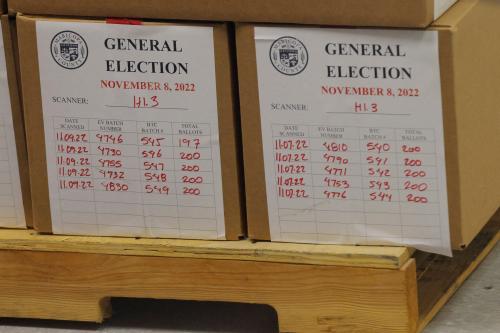British voters just sent shock waves through the American political establishment by voting to leave the European Union. The vote was a dramatic rejection of British and international elites, all of whom had warned of dire economic consequences of such a result for Britain, the European Union and the global economy. Inevitably the British vote is leading to speculation about the upcoming American elections. British voters were driven by anger over the E.U.’s liberal immigration policy. Ditto Trump voters here in the United States. So it makes sense to ask whether or not the Brexit victory presages a victory for Trump and his allies? Will America follow Britain in November?
But three notes of caution before concluding that the anti-immigration sentiment that swayed British voters will translate into a November sweep for Donald Trump.
- Brexit was a referendum on a specific issue and it did not include an actual person. In November American voters will vote not just on immigration but on a plethora of other issues and on the individual capabilities and temperament of Hillary Clinton and Donald Trump.
- In spite of the intra-party turmoil at the top of the ticket in both parties there is little or no evidence that either the Trump revolt or the Bernie Sanders revolt is affecting down ballot races.
- America, being a country of immigrants, turns its immigrants into full-fledged voters pretty quickly compared to other countries. The result is that in America there is a sizeable voting bloc of new Americans who have the ability to counter anti-immigration sentiment.
Let’s take these one at a time. Years ago I ran a referendum campaign in Virginia. In many ways it was so much easier than running a campaign for a person. Issues don’t misbehave. They don’t say dumb and or insulting things. They don’t have a string of bad business deals or bad marriages behind them. They are much less complex than a campaign with an living breathing person, prone to missteps and with a history.
Second, despite the upheaval in the Republican Party brought on by Donald Trump, and an arguably similar (although unsuccessful) anti-establishment wave fueled by Bernie Sanders, few incumbent members of Congress have been ousted in their primary, and those who have can hardly been said to have lost to a “Trump” or “Sanders” wave. For example, the only sitting Democratic congressman overtaken by a primary challenger so far, Representative Chaka Fattah, was hardly ousted in favor of a progressive warrior or outsider. His challenger, State Representative Dwight Evans, has been in the Pennsylvania legislature for over three decades and served as the Chairman of the PA House appropriations committee for 20 years.
Finally, even though the United States has many illegal immigrants, it also has many foreign born and second generation immigrants who are citizens and who can vote. This group – mainly Latino and increasingly Asian – forms a powerful counter weight to the anti-immigrant sentiment represented by Trump. In fact, the most powerful way of looking at American elections in recent years has been to calculate the “white” vote. In 2012 only 72% of the American electorate was white. Had that percentage been a few points higher, President Romney would now be finishing his first term. In 2016, it is anticipated that the “white” vote will decrease, leading some to conclude that there are just not enough angry white men in the electorate to elect Trump. In the recent British election citizens of the Commonwealth countries (countries that were part of the British Empire) who live in the United Kingdom could vote but citizens from other European Union countries living in Great Britain do NOT get to vote. In other words, the United States has a coherent voting bloc that has the numbers to counter Trump – while Britain does not.
The Brexit vote was a severe jolt to Britain, to the European Union and perhaps to the global economy. However, it is wise to take a deep breath before concluding, as Donald Trump was from his golf course, that it means a Trump victory in November.



Commentary
The Brexit wave: will it be repeated here in the U.S.?
June 24, 2016